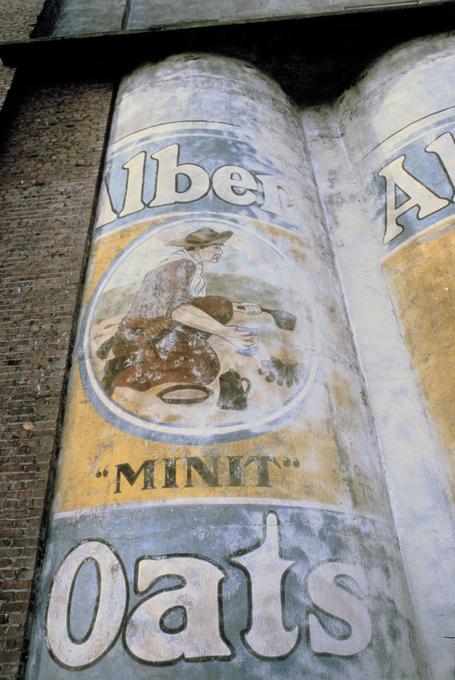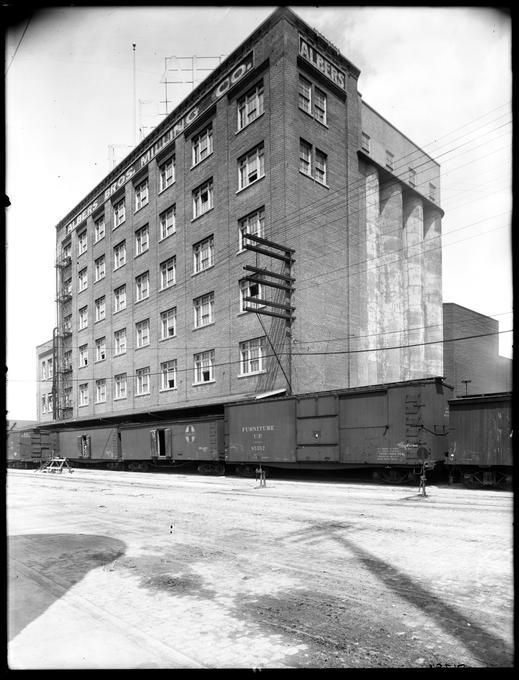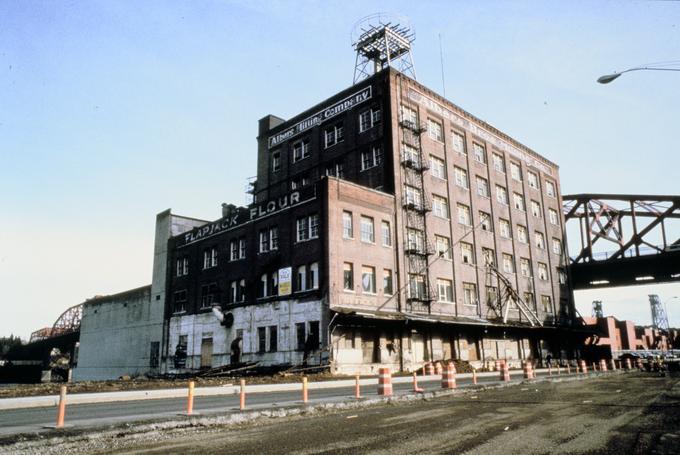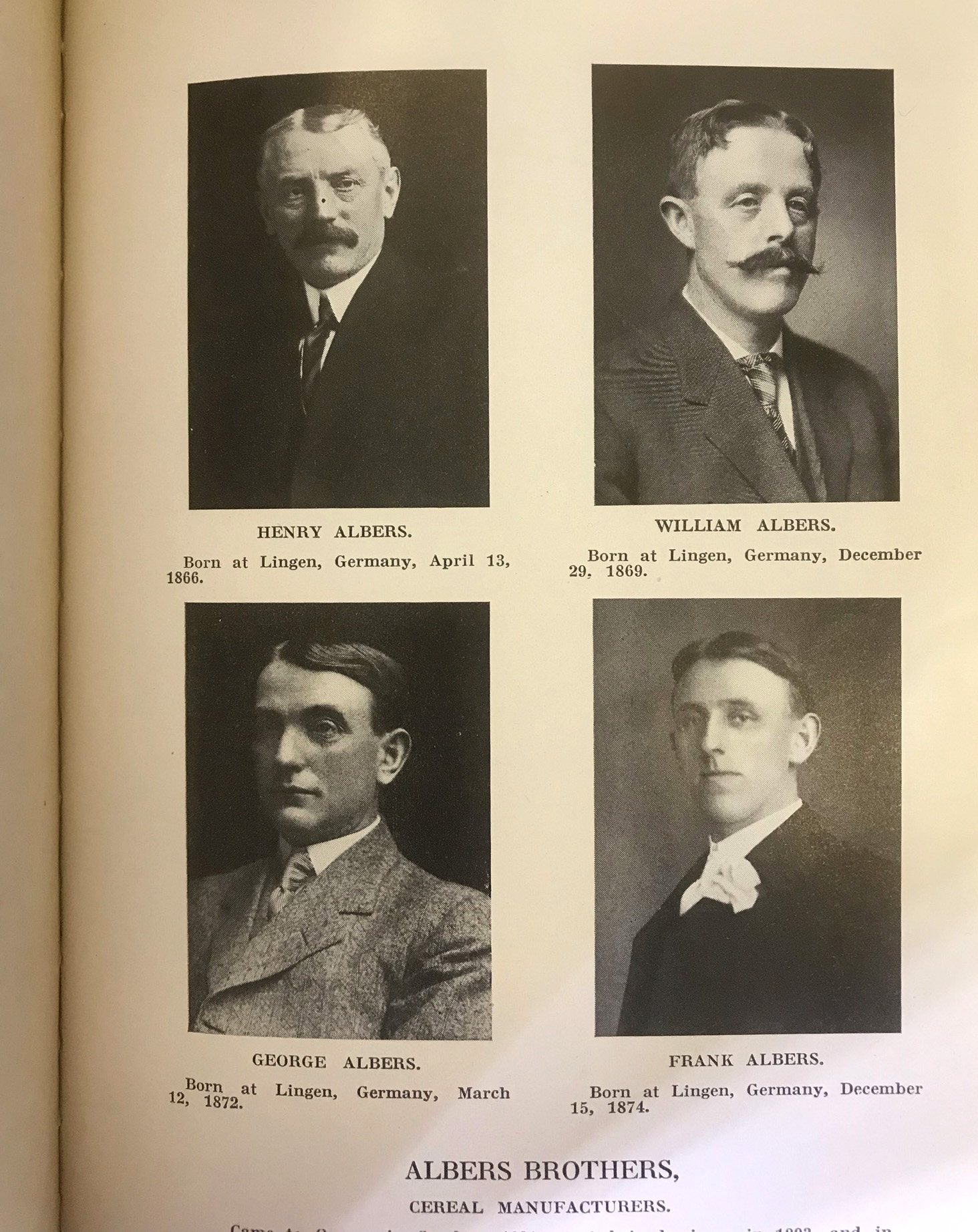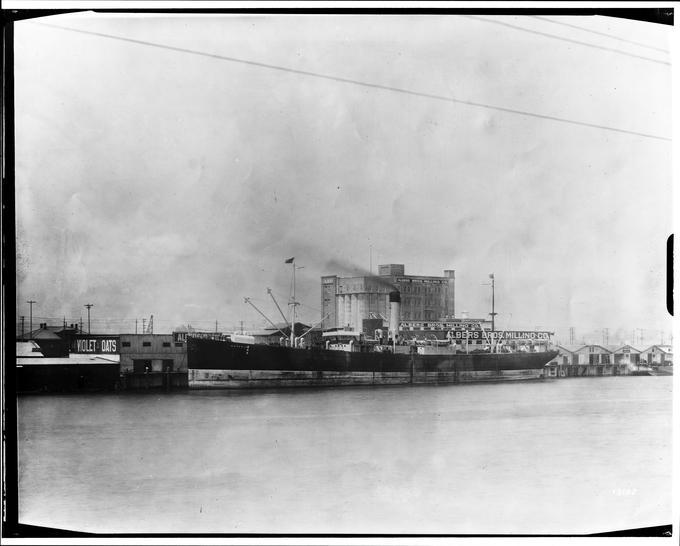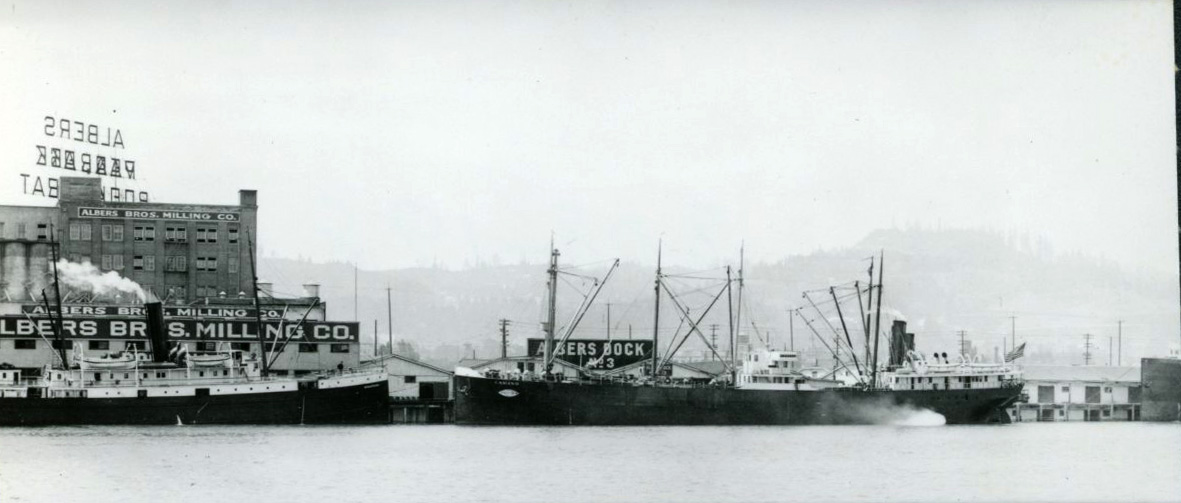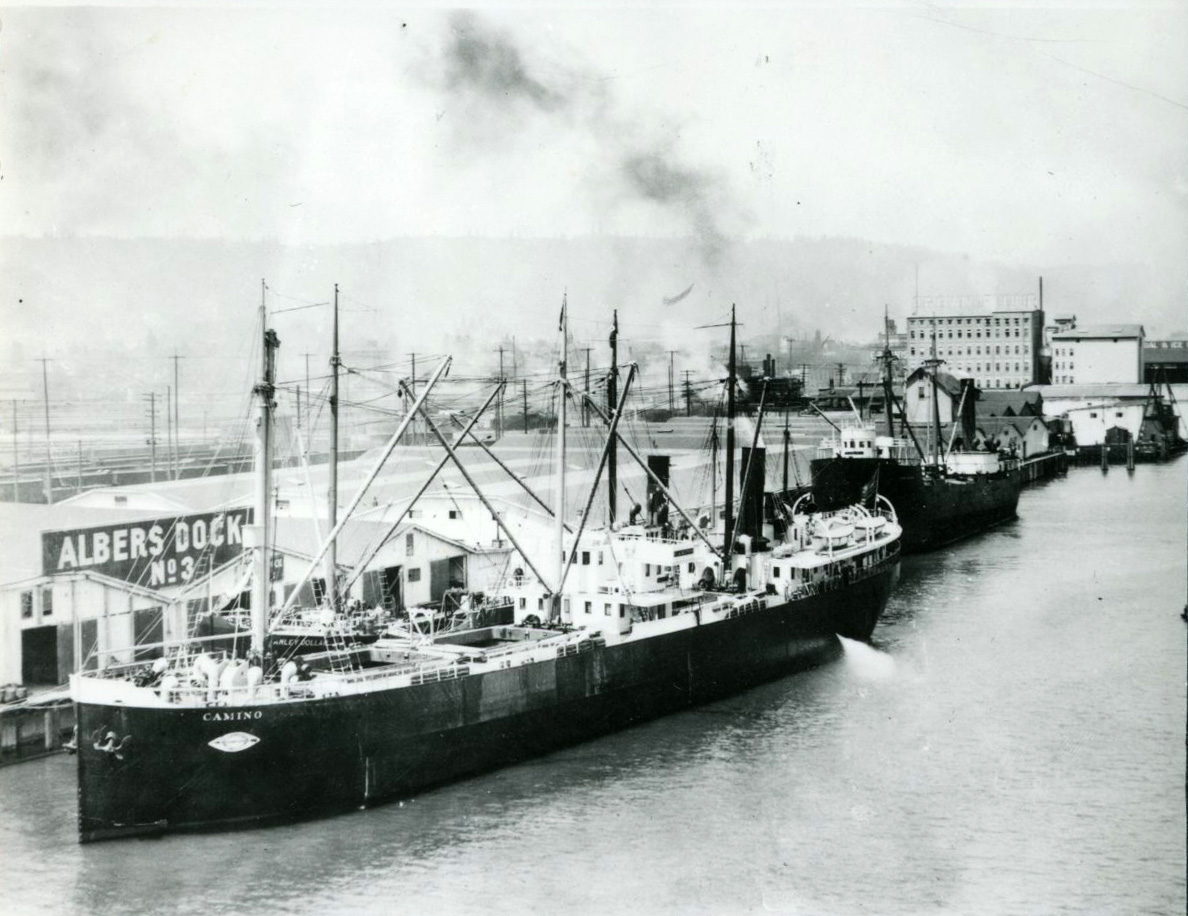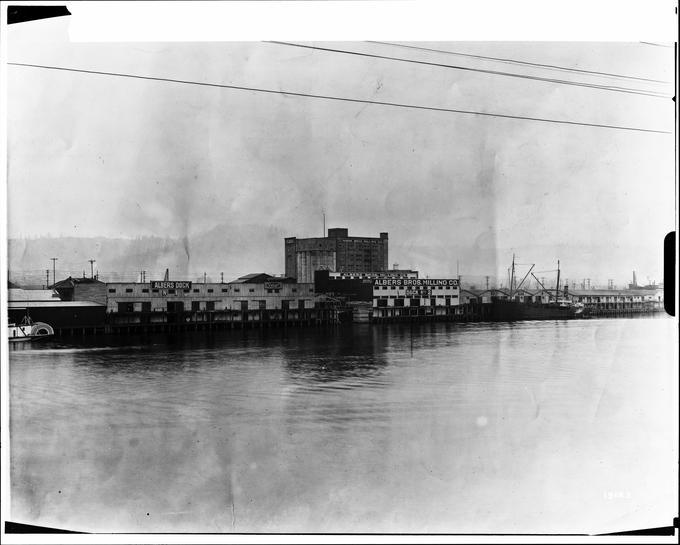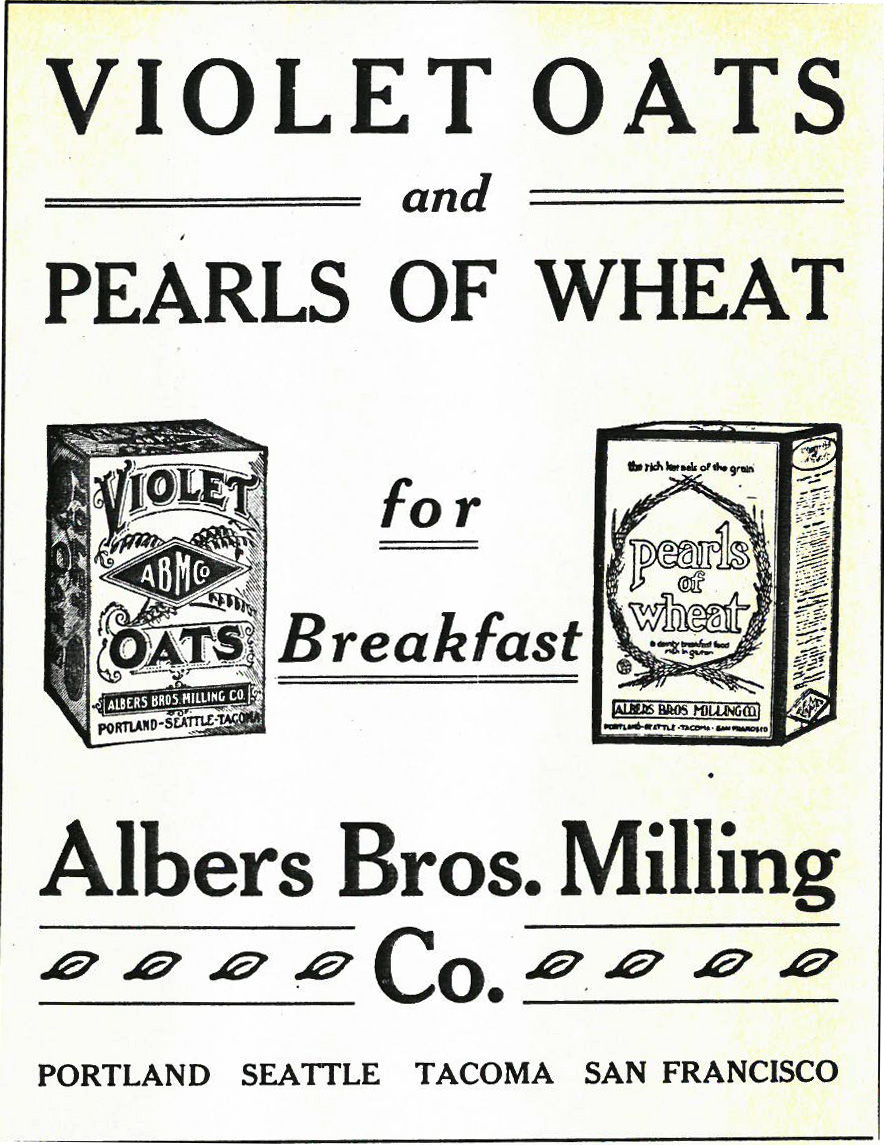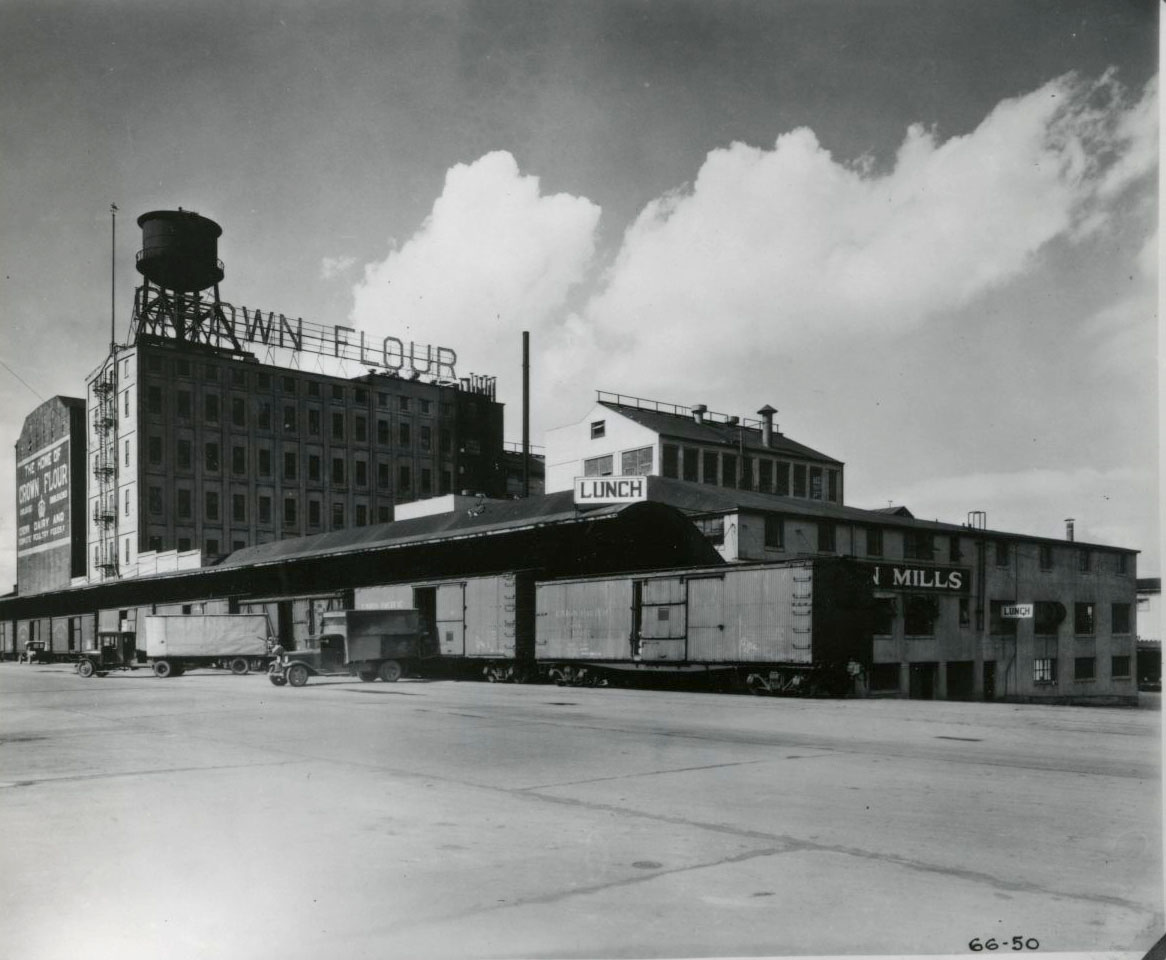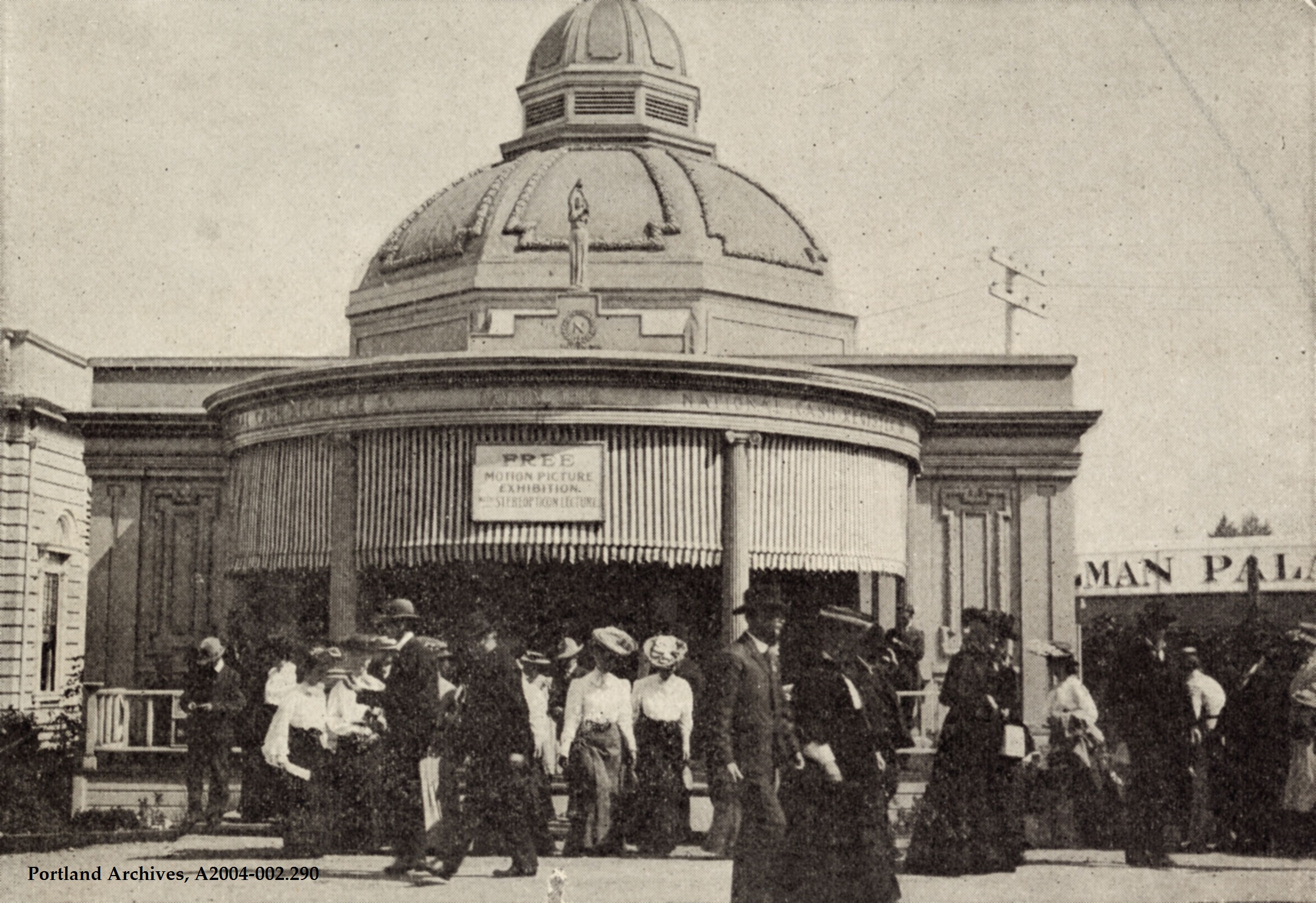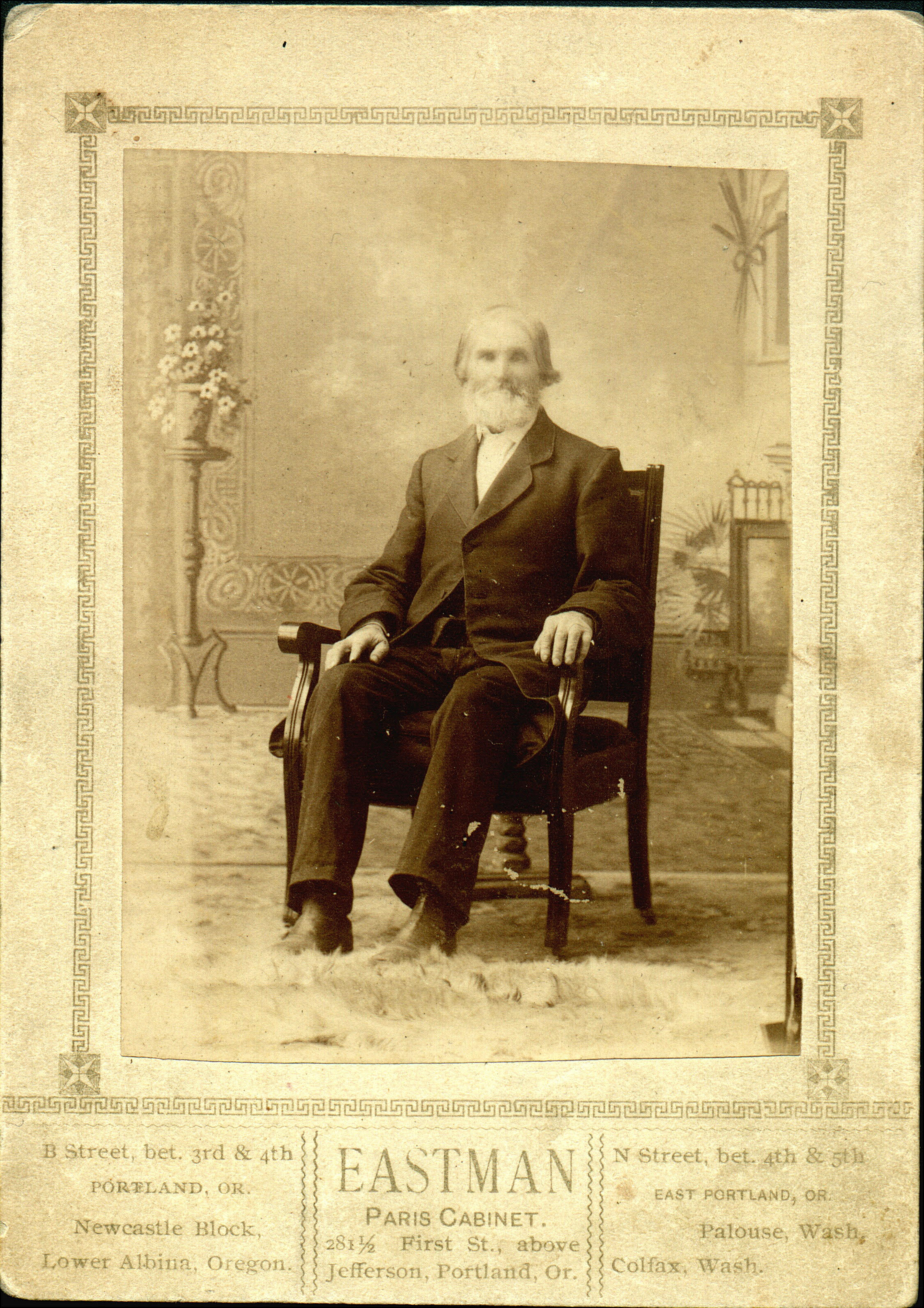Bernard (or Bernhard) Albers emigrated from Lingen, Germany, to Indiana in 1887 and moved to Portland two years later to work as a driver for a feed merchant company—a business he had trained for with his father. At the time, wheat and flour were two of Oregon’s largest and most profitable exports, and by 1893 Albers had established his own grain business, first with Henry Tuke and then with Thomas Schneider. His large family had also emigrated from Germany, and in 1901, he and four brothers incorporated as the Albers Brothers Milling Company, which milled soft white wheat into flour and corn into meal, among other milled products. With Bernard Albers as president, they built what became the largest flour and feed milling firm on the West Coast, with mills in Tacoma, Seattle, Ogden (Utah), Los Angeles, and Oakland/San Francisco. In addition to selling its Peacock buckwheat flour, Albers Mill sold cereals that included Violet Oats, Pearls of Wheat, and Columbia Oats, as well as animal feed and hay.
Albers Mills is located on the Willamette River in an area historically occupied by docks and grain-storage warehouses and where ships were loaded with wheat, flour, and other agricultural and forest products. A fire in 1902 destroyed the company’s main plant in Portland, and Albers Brothers began construction on a new mill in 1909. The Albers Brothers Milling Co. Building, or Albers Mill, completed in 1911, is a six-story, brick, reinforced concrete structure located just north of the Broadway Bridge (opened in 1913), between Naito Parkway and the Willamette River. The building, which combined milling, warehousing, shipping, and office space, is the oldest of the four remaining flouring and feed mills in Portland and is on the National Register of Historic Places.
When Bernard Albers died in 1908, his brother Henry became president. Brothers William, George, and Frank took charge of the mills to the north and south, while Henry managed the business from Portland. Henry Albers, who was a prominent member of the city’s business and fraternal associations, was largely responsible for the growth of the company through the 1910s. He stepped down as presiden, however, after he was arrested in October 1918 and charged with violating the Federal Espionage Act. During World War I, German Americans were surveilled for signs of disloyalty, and when Henry was arrested for drunkenness on a train from California—the October 22, 1918, Oregonian reported that "he unburdened himself to the fullest extent concerning his attitude toward the United States and Germany"—he allegedly protested his arrest using pro-German invectives. His conviction was eventually overturned, but by then he had lost both his company and his reputation. He died of a stroke in 1927.
The Albers brothers continued to run the business; but with the decline of the international wheat market and retirement in mind, they merged the company with the Seattle-based Carnation Milk Products Company in 1929. Albers Co. became a division of Carnation, which kept the Albers brand name and products and named the Albers brothers to the board. Carnation continued to use the Albers production and warehousing facilities in Portland until the buildings were partially demolished in 1965-1966, as were many riverside buildings during the state-mandated streamside restoration projects of the 1960s. Beginning in 1966, thirty feet of fill was added to the northwest end of the site, possibly including concrete-steel bow sections of scrapped World War II Liberty ships. Nestlé purchased the Carnation Company and the Albers brand in 1984.
The Carnation Company was still operating the mill building in the mid-1980s when it was acquired by the Bill Naito Company. The company rehabilitated Albers Mill and opened it in 1989 with offices and laboratory space for the Wheat Marketing Center, which promotes and markets the worldwide sale of the soft white wheat grown in the region. The first tenants also included laboratories for the Federal Grain Inspection Service; OMIC, a Japanese agricultural inspection company; and the State of Oregon’s export certification laboratory.
Continental Mills of Seattle, which purchased the Albers brand from Nestlé in 2008, continues to produce and market Albers cornmeal and grits to grocers nationwide.
-
![]()
Albers Bros. "Minit" Oats.
Courtesy University of Oregon Libraries, Building Oregon coll.
-
![]()
Freight cars in front of Albers Mill, on Front Ave. (Naito Pkwy), Portland.
Courtesy University of Oregon Libraries, Angelus Studios, PH037_b017_B00085
-
![]()
Albers Bros. Mill on NW Front Ave. (Naito Pkwy), Portland. Broadway Bridge in background..
Courtesy University of Oregon Libraries
-
![]()
Four of the Albers brothers, 1911.
Courtesy Oregon Hist. Soc. Research Lib., Chamber of Commerce "Men of Oregon," published 1911
-
![]()
Albers Mill, west waterfront, Portland.
Courtesy University of Oregon Libraries, Angelus Studios, PH037_b140_MF00537
-
![]()
Albers Bros. Mill and Dock, west waterfront, Portland.
Courtesy Oregon Hist. Soc. Research Lib., 004526
-
![]()
S.S. Camino at the Albers Dock #3, west waterfront, Portland.
Courtesy Oregon Hist. Soc. Research Lib., Oregonian, 009802
-
![]()
Albers Bros. Mill on the west waterfront, Portland.
Courtesy University of Oregon Libraries, Angelus Studios, PH034_b140_MF00526
-
![]()
Ad for Albers Bros. products in the Oregon City Spectator, December 24, 1910.
Courtesy Oregon Hist. Soc. Research Lib., vertical file, Albers Mill
Related Entries
-
![Crown/Centennial Mills]()
Crown/Centennial Mills
For eighty years, Crown Mills, known as Centennial Mills after 1949, wa…
-
Reuse and Restore Movement in Portland
The repurposing and reuse of buildings in Portland have their roots in …
-
![Volga Germans in Oregon]()
Volga Germans in Oregon
The first group of Volga Germans arrived in Oregon in 1881, encouraged …
Related Historical Records
Map This on the Oregon History WayFinder
The Oregon History Wayfinder is an interactive map that identifies significant places, people, and events in Oregon history.
Further Reading
Heritage Investment Corporation. National Register of Historic Places Inventory — Nomination Form: Albers Brothers Milling Company, 1984.
“Albers & Schneider Co. Tremendous Expansion In It’s First Eight Years.” Oregonian, January 1, 1902.
“A $94,500 Blaze. Destructive Fire on the River Front. Rages Six Hours. Albers & Schneider Mills Totally Destroyed.” Oregonian, February 24, 1902.
“Acquire Chain of Mills. Albers Bros. Now Have Four Coast Plants. Purchase of Del Monte Property Makes Local Firm Supreme on Pacific Slope.” Oregonian, January 14, 1909.
“Biggest Mill in West to be Built. Albers Bros. Buy Greenwich Docks, Nos. 1 and 2 from J. Couch Flanders.” Oregonian, May 25, 1909.
“Portland Millman is Held as Pro-Hun. Henry Albers is Charged with Violating Espionage Act.” Oregonian, October 22, 1918.
Bill Naito Company (2018), http://albersmillbuilding.info/main.cfm?sid=introduction&pid=aboutprop



